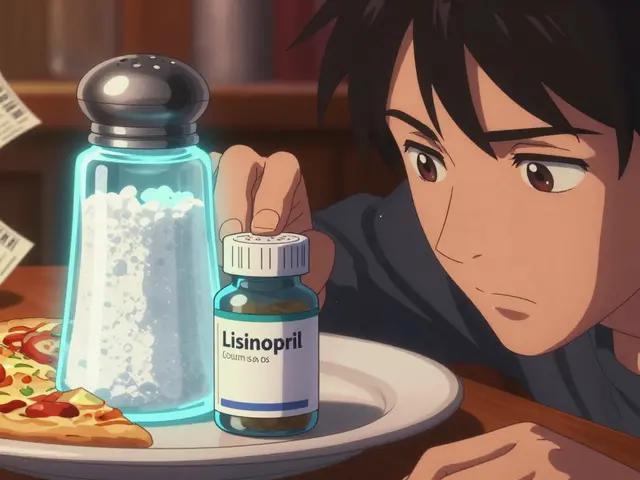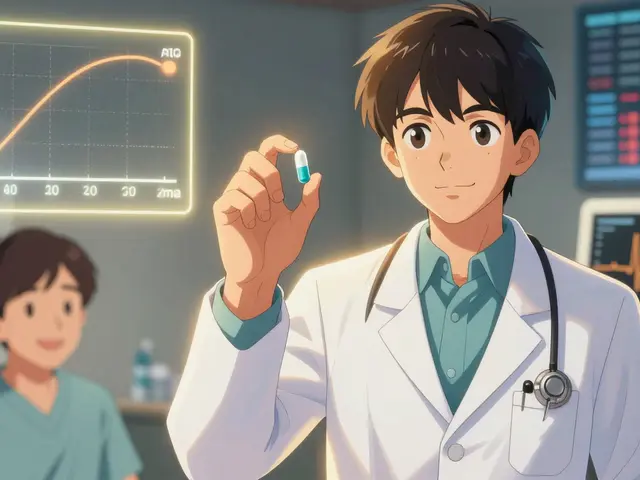Mental Health
Feeling off mentally doesn't mean you're weak. This page gives straight, useful info about common mental health problems men face, how treatments work, and when to get help. You'll find clear guidance on medications, risks to watch for, and simple steps you can take right now.
Spot the signs and act
Changes in sleep, appetite, energy, or interest in things you used to enjoy are practical signals something's wrong. If you notice persistent low mood, anxiety that ruins your day, mood swings, or new thoughts about harming yourself, treat that as an urgent red flag. Don't wait for a dramatic crisis—ask a trusted person to help you make an appointment, call your doctor, or use local crisis lines.
Suicidal thoughts need direct attention. Tell a clinician exactly what you feel. If you think you might act on these thoughts, remove easy means (medications, weapons) and go to an emergency room or call emergency services now. Talking openly with a professional can reduce immediate danger and start a plan to keep you safe.
Medications: what to expect and safety checks
Medications can help a lot, but they're not magic. Antidepressants, mood stabilizers, and antipsychotics each target different problems. For example, olanzapine is an antipsychotic used for bipolar disorder and schizophrenia; it can help stabilize mood and reduce severe symptoms. However, some medications can temporarily raise suicide risk in certain people, especially young adults or when doses change fast. That's why doctors monitor you closely in the first weeks.
If you're starting or changing a drug like olanzapine, expect regular follow-ups. Your clinician will check mood, side effects, weight, blood sugar, and cholesterol because some antipsychotics affect metabolism. Keep a simple symptom log—note sleep, appetite, mood swings, and any self-harm thoughts—and bring it to appointments. If side effects or new suicidal thoughts appear, contact your prescriber right away.
Therapy and meds often work best together. Cognitive-behavioral therapy (CBT) teaches practical tools to change unhelpful thinking, while medication can make therapy more effective by stabilizing brain chemistry.
Small daily steps matter: keep a routine, move your body, limit alcohol and drugs, sleep regularly, and reach out to friends. These actions lower stress and make treatments work better. If you're unsure where to start, a primary care visit or a local mental health clinic can point you to therapy, support groups, or urgent care when needed.
MaleExcel Pharma Guide collects clear, practical posts on medications and safety—like our article on olanzapine and suicide risk—so you can learn what to watch for and how to talk with your clinician. If something feels off, act now: early steps save time and protect your health.

Bupropion vs SSRIs: Side Effects Compared for Real-World Use
Bupropion and SSRIs treat depression differently, with key differences in side effects like sexual function, weight, energy, and anxiety. Learn which is better for your needs based on real data and patient experiences.

Child and Adolescent Depression: Family Therapy and Medications Explained
Child and adolescent depression requires timely, evidence-based care. Family therapy rebuilds relationships, while SSRIs like fluoxetine and escitalopram can lift severe symptoms. Combining both offers the best outcomes for long-term recovery.

Mindfulness for Anxiety: Proven Techniques and Clinical Evidence
Mindfulness for anxiety is backed by clinical evidence showing it can reduce symptoms as effectively as medication-without side effects. Learn the proven techniques, how they change your brain, and how to start.

Choosing the Right OCD Therapist: A Practical Guide
A step‑by‑step guide to picking an OCD therapist, covering credentials, therapy types, costs, red flags, and a handy comparison table.





